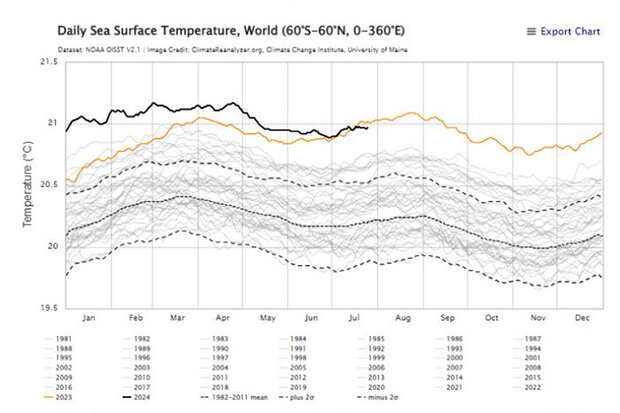Super-marine heatwaves: A new term for a growing concern

The Daily Optimum Interpolation Sea Surface Temperature (DOISST) dataset has long been used by the climate community for monitoring, research, and assessment. Credit: NOAA

The Daily Optimum Interpolation Sea Surface Temperature (DOISST) dataset has long been used by the climate community for monitoring, research, and assessment. Credit: NOAA
2023 was a record-breaking year. According to the Annual 2023 Global Climate Report, 2023 was the warmest year since global atmospheric temperature records began in 1850, at 1.18°C (2.12°F) above the 20th-century average of 13.9°C (57.0°F). Now, a new analysis led by NCEI scientists published in Geophysical Research Letters (GRL) shows that global mean sea surface temperatures also set a record high in 2023. The paper further indicates that these record-breaking temperatures were associated with extremely strong marine heatwaves that the authors dubbed super-marine heatwaves.
Sea surface temperature (SST) is the temperature of the uppermost layer of seawater, which typically means the top few meters. SST data are collected by satellite observations or by in situ observations from ships, drifting buoys, moored buoys, and more recently, Surface Autonomous Vehicles such as Saildrones. Monitoring changes in SST is essential for understanding and mitigating the impacts of climate change and other environmental stressors.